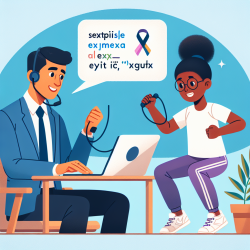As an online therapist, staying updated with the latest research and resources is crucial for providing the best possible support to your students. One such valuable resource is "Working Out with Syntax" by Sarah A. Thurs, Angela Sterling Orth, Heather Johnson Schmitz, and Joyce A. Olsen. This book offers practical exercises aimed at enhancing syntax skills in children aged 5-10 years. The following insights from this resource can be implemented to improve your practice.
Understanding Syntax
Syntax refers to the set of rules that govern the structure of sentences. It includes the arrangement of words and phrases to create well-formed sentences in a language. For young learners, mastering syntax is a critical component of language development.
Key Features of "Working Out with Syntax"
The book is structured into 50 workouts, each focusing on specific syntactic areas:
- Pronouns: personal, possessive, reflexive, indefinite, and demonstrative
- Regular and Irregular Verbs
- Plurals
- Compound and Complex Sentences
- Questions
Each workout includes six exercises, targeting both comprehension and expression tasks. The "Think About Challenge" section provides more advanced syntactic exercises to further engage students.
Implementing the Exercises in Online Therapy
To integrate these exercises into your online therapy sessions, consider the following strategies:
1. Tailored Workouts
Use the Item Analysis provided in the book to select exercises that match the individual needs of your students. This allows you to focus on areas where they require the most support.
2. Baseline and Progress Monitoring
Establish a baseline for each student's syntactic skills using the recording form included in the book. Periodically measure progress to adjust your approach and ensure continuous improvement.
3. Mediation and Generalization
When working with students, focus on mediating their learning. This involves guiding their attention to the key aspects of each task and helping them understand how these skills apply beyond the immediate exercise. For example, if a student struggles with pronouns, use visual aids and provide multiple-choice options to support their learning.
4. Collaborative Efforts
Engage parents and caregivers by sharing specific exercises they can practice at home. This not only reinforces learning but also ensures consistency in the child's development. Provide clear instructions and examples to facilitate their involvement.
Benefits of Using "Working Out with Syntax"
Incorporating the exercises from "Working Out with Syntax" can yield several benefits:
- Improved syntactic skills through structured and engaging activities
- Enhanced comprehension and expression abilities
- Increased confidence in using complex sentence structures
- Better preparation for academic challenges
Encouraging Further Research
While "Working Out with Syntax" provides a robust framework for syntax practice, it's essential to stay informed about new developments in language education. Regularly reviewing current research can offer fresh insights and innovative strategies to enhance your practice.
To read the original research paper, please follow this link: Working Out with Syntax.










